Technique Conquers EverythingJan 19, 2017 by Joshua Hinger
The Nasty Business Of Cutting Weight: Some Advice From A World Champion
The Nasty Business Of Cutting Weight: Some Advice From A World Champion
This article is intended to explain my opinion on cutting weight to new competitors. It is not intended as a critique of black belt or other seasoned veterans' competition preparation or pre-comp methodologies.
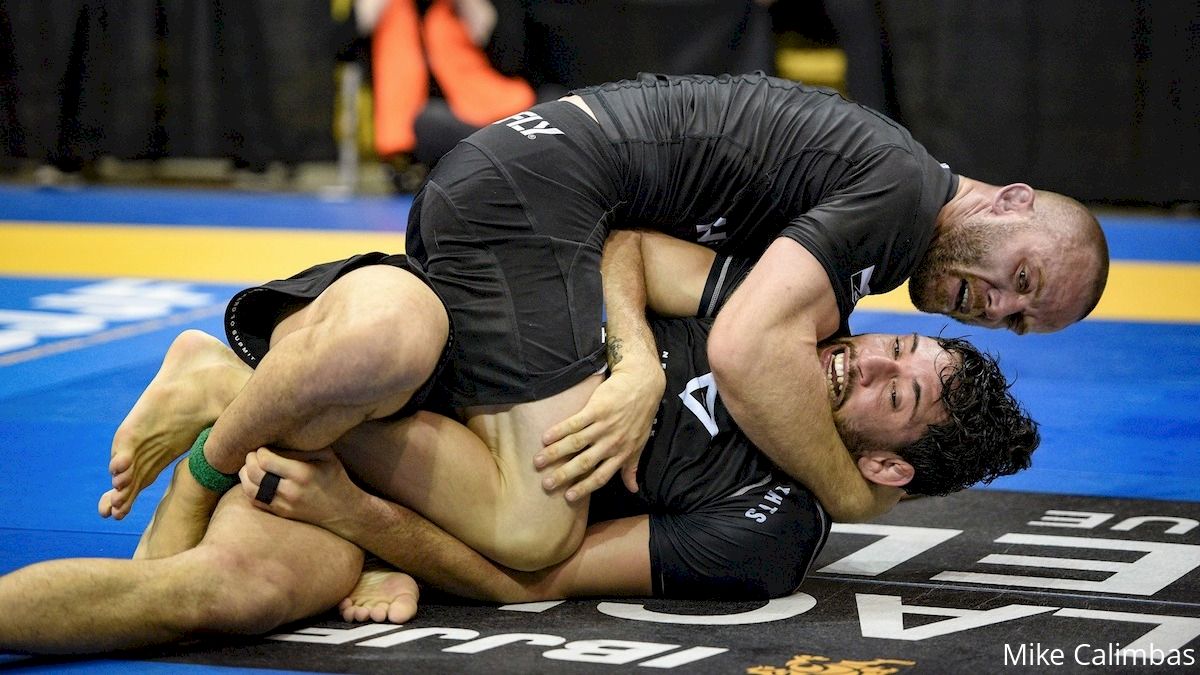
This article is intended to explain my opinion on cutting weight to new competitors. It is not intended as a critique of black belt or other seasoned veterans' competition preparation or pre-comp methodologies.
In high school, I loved wrestling more than anything. It's the reason I started training jiu-jitsu.
I loved wrestling so much that I would starve and dehydrate myself for four to five days in a row in order to make weight. Every week I would cut from 162lbs on Monday to 147lbs on Thursday.
After weigh-ins, I would binge eat and hydrate in order to fuel up for my Thursday evening match. Friday, I would train and run around with a trash bag under my sweatshirt in order to get my weight back down for the weekend tournament.
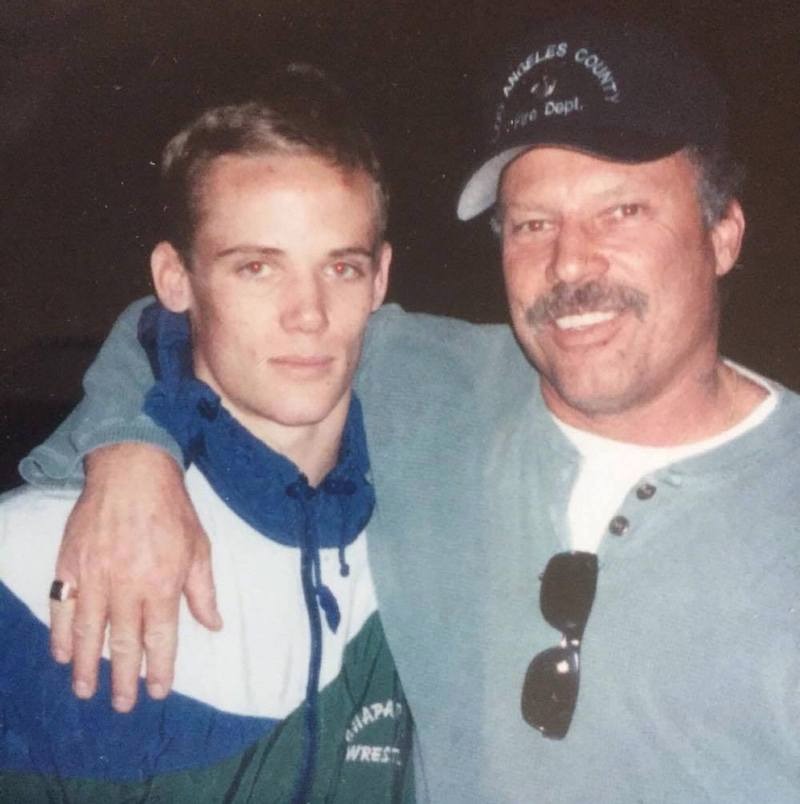 Saturday morning after weigh-ins, I would binge eat again. I would compete Saturday and Sunday, and then start the process all over again on Monday.
Saturday morning after weigh-ins, I would binge eat again. I would compete Saturday and Sunday, and then start the process all over again on Monday.
It was a grueling process for a 16 year-old kid who had no idea what he was doing. I would wake up each morning, eat a bowl of cereal, and go to morning practice. After morning practice, I wouldn't eat. I wouldn't eat lunch. I wouldn't drink any water. After school I would eat an apple take a few sips of water and go to practice again and train in two layers of sweats.
I would usually skip dinner, or I would just take a few meager bites of whatever my family had that night. It was easy to skip dinner because wrestling practice usually ran past the time that my family would eat dinner.
I would go to bed hungry and thirsty. If the cottonmouth was particularly bad at night I would chew on ice cubes. I'll never forget how delicious my morning cereal tasted. It was my favorite 20 minutes of the entire 24-hour period.
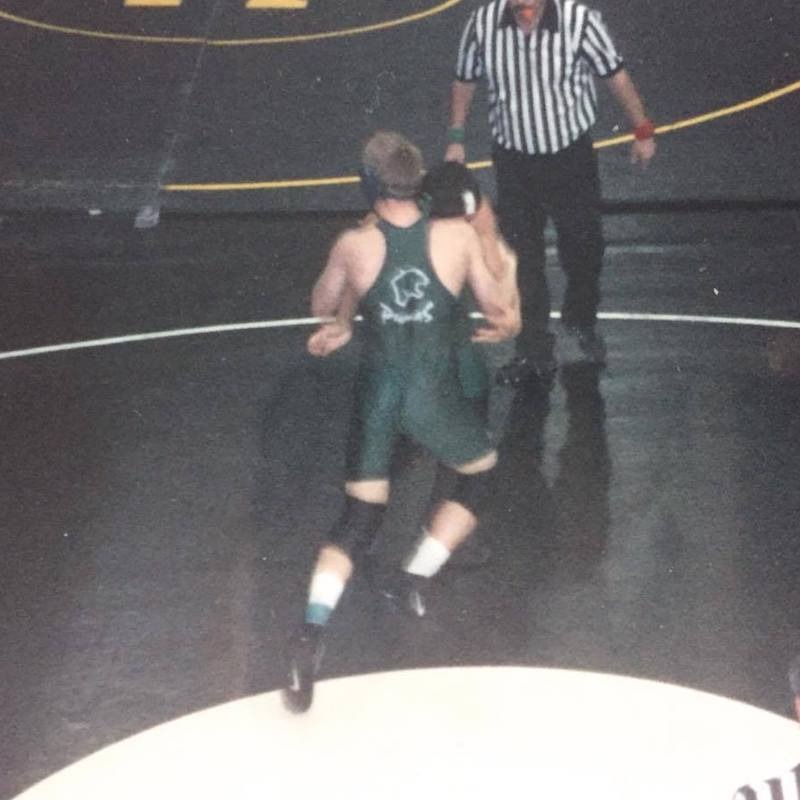 If I consumed any extra food or water, I was plagued with guilt and I made sure to bust out an extra 25-50 pushups or sit-ups to burn the extra calories. 100 calories in, 1000 calories out; 1 cup of water in, 10 cups of water out.
If I consumed any extra food or water, I was plagued with guilt and I made sure to bust out an extra 25-50 pushups or sit-ups to burn the extra calories. 100 calories in, 1000 calories out; 1 cup of water in, 10 cups of water out.
In my mind, it was a simple math equation -- intake must be less than output and inevitably my body will shrink to the appropriate weight. In hindsight, this was ANYTHING BUT appropriate.
Four years after high school I found myself doing it again, this time for MMA fights. But I had a different strategy. I would eat only boiled chicken and white rice twice a day for 3-4 weeks, but I would make sure to consume a gallon of water everyday.
This was more like an extreme diet that lasted a month and I was usually on-weight the day of the weigh-ins. No dehydration needed. In high school wrestling, I was cutting 15lbs three days before the weigh-in and repeating the process weekly.
Cutting weight sucks, and in my opinion, it is completely unnecessary.
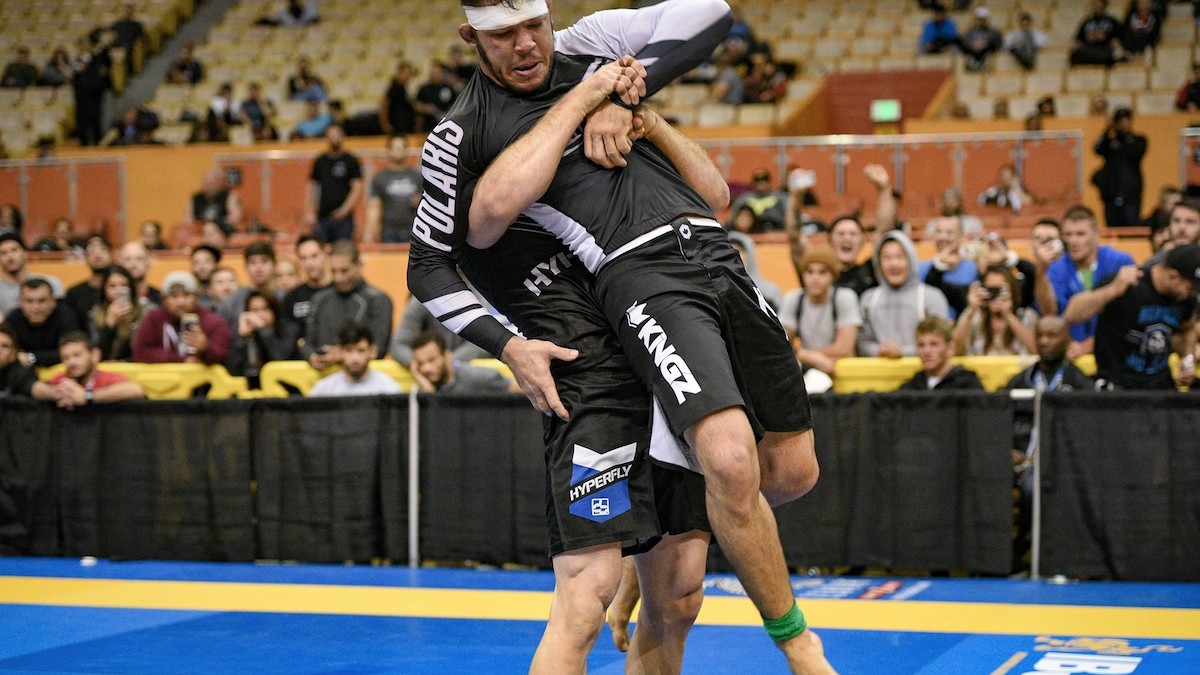
Josh Hinger takes down Charles Negromonte at 2016 No-Gi Worlds. Photo: Mike Calimbas
In wrestling, we had about three hours to eat, drink, and recover before our matches. For MMA matches, we had 8-24 hours depending on the state and the organization.
In the IBJJF, we have about 10 minutes.
When someone first told me about the IBJJF and that we had to weigh-in about 10 minutes before we step onto the mat, I thought it was outrageous. I thought, "How could they possibly expect anyone to recover in just 10 minutes?"
The weight cutting mentality had been so deeply engrained into me that I couldn't even fathom the fact that the IBJJF was discouraging weight cutting.
Requiring weigh-ins just 10 minutes before the match is intended to prevent people from cutting weight. There is no recovery time, because you shouldn't be recovering at all. You should be healthy, non-depleted, and ready to compete before you even stepped onto the scale.
Jiu-jitsu competition is a test of technique and physical conditioning. If you lose to an opponent who is one weight class heavier than you, it is not because he or she was bigger or heavier than you. You lost because your technique and physical conditioning were not sharp enough.
There is no other excuse.
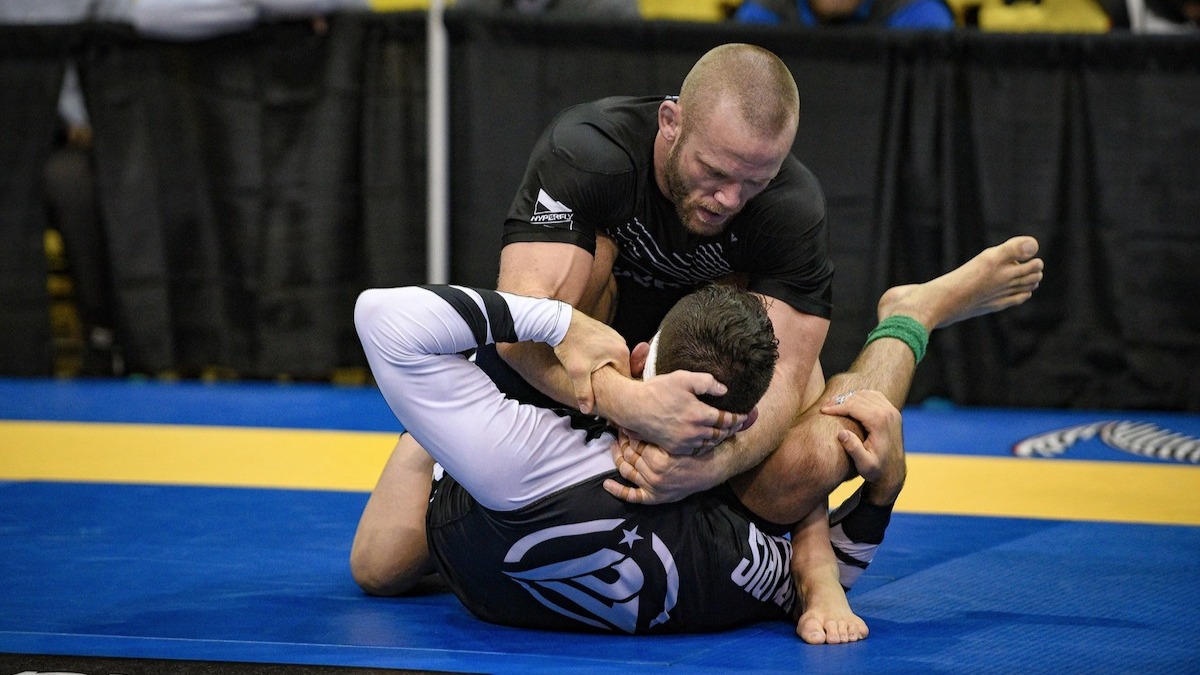
Photo: Mike Calimbas
10-12lbs is not going to predetermine the winner of the match. If you are a person who is overly concerned with the weight of your opponent, the mental distress you create for yourself over the weight disparity is far more likely to cause you to lose than the actual weight itself. Essentially, you might be defeating yourself.
Technique and physical conditioning are equally important factors in jiu-jitsu competition. The best technique in the world is useless without power and agility to back it up. This is why cutting weight is so perplexing to me.
Here are a few disadvantages of cutting weight that stand out in my mind:
• As a competitor, you are depleting your body of the energy and power that it needs to perform well in competition.
• Additionally, you are likely limiting your ability to train hard during the last week leading up to the competition.
• You are limiting your ability to bring the heat during the match.
• And probably most importantly, you are conceding the fact that you are not confident in your abilities to take-on an opponent who might or might not be a few pounds heavier than you.
• Finally, you are putting yourself at a disadvantage for the open class.
What's the advantage of cutting weight? You may or may not be 4-7lbs heavier than your opponent. Whoopty-doo. I don't even think this is an advantage. I've often joked that smaller guys have the advantage against bigger guys in jiu-jitsu.
Let's consider the advantages of not cutting weight.
• You will have the energy to train hard in the last days leading up to competition day.
• You get to eat a big fat healthy dinner the night before the competition.
• You will probably sleep better the night before the competition because you have a full belly and you don't have to worry about not making weight in the morning.
• You get to eat a big fat healthy breakfast the morning before your competition.
• You will have lots of energy to do a great warm up and not have to worry about burning yourself out before your first match.
• You will have the stamina to fight hard to the end of the match. (This is crucial. I've had a good number of matches that were very close for the first 7 minutes of the round. In the 8th minute, my opponents slowed down and I was able to capitalize.)
• Lastly, you will have the stamina to fight several matches without burning out, including the open class.
• Most importantly, your competition experience will be less miserable. Cutting weight is not fun at all.
There are a few caveats to the argument that I've made here. There are some situations when multiple teammates are in the same division, and the most logical solution is for one of them to move to a lower weight class.
Then again, there is always the option of moving up a weight class.
For example, my teammate Lucas Barbosa moved up to the heavy weight division at the 2016 IBJJF Nogi Worlds so that he and I would not have to close out the medium heavyweight division.
He was 20lbs underweight and he won the heavyweight division. Interestingly enough, he was in the finals with Vitor Oliveira, who also entered the division weighing much less than the limit. This was a great example of how technique and conditioning prevails over non-extreme weight differences.
Another caveat is that certain submission invitational competitions ask competitors to compete at a certain weight. If your two options are to make the weight and compete, or don't compete at all, then I respect doing what you must to get your name on the bracket.
My overall point is this: You do not need to cut weight in order to win a division.
You train hard so that you can transform yourself into a lean, mean, submission machine. So do not do yourself the disservice of unraveling your full potential by cutting weight the last days before your competition.
I can assure you that whether you win or lose, it will not be because you were 5 or 10lb heavier or lighter. If you need to get down to a weight division below your normal weight, start five to six weeks in advance and bring your weight down slowly by maintaining a well-balanced dietary regime.
Josh Hinger is an IBJJF 2016 black belt no-gi world champion representing Atos Jiu-Jitsu. Follow him on Instagram and Facebook.
In high school, I loved wrestling more than anything. It's the reason I started training jiu-jitsu.
I loved wrestling so much that I would starve and dehydrate myself for four to five days in a row in order to make weight. Every week I would cut from 162lbs on Monday to 147lbs on Thursday.
After weigh-ins, I would binge eat and hydrate in order to fuel up for my Thursday evening match. Friday, I would train and run around with a trash bag under my sweatshirt in order to get my weight back down for the weekend tournament.
 Saturday morning after weigh-ins, I would binge eat again. I would compete Saturday and Sunday, and then start the process all over again on Monday.
Saturday morning after weigh-ins, I would binge eat again. I would compete Saturday and Sunday, and then start the process all over again on Monday. It was a grueling process for a 16 year-old kid who had no idea what he was doing. I would wake up each morning, eat a bowl of cereal, and go to morning practice. After morning practice, I wouldn't eat. I wouldn't eat lunch. I wouldn't drink any water. After school I would eat an apple take a few sips of water and go to practice again and train in two layers of sweats.
I would usually skip dinner, or I would just take a few meager bites of whatever my family had that night. It was easy to skip dinner because wrestling practice usually ran past the time that my family would eat dinner.
I would go to bed hungry and thirsty. If the cottonmouth was particularly bad at night I would chew on ice cubes. I'll never forget how delicious my morning cereal tasted. It was my favorite 20 minutes of the entire 24-hour period.
 If I consumed any extra food or water, I was plagued with guilt and I made sure to bust out an extra 25-50 pushups or sit-ups to burn the extra calories. 100 calories in, 1000 calories out; 1 cup of water in, 10 cups of water out.
If I consumed any extra food or water, I was plagued with guilt and I made sure to bust out an extra 25-50 pushups or sit-ups to burn the extra calories. 100 calories in, 1000 calories out; 1 cup of water in, 10 cups of water out. In my mind, it was a simple math equation -- intake must be less than output and inevitably my body will shrink to the appropriate weight. In hindsight, this was ANYTHING BUT appropriate.
Four years after high school I found myself doing it again, this time for MMA fights. But I had a different strategy. I would eat only boiled chicken and white rice twice a day for 3-4 weeks, but I would make sure to consume a gallon of water everyday.
This was more like an extreme diet that lasted a month and I was usually on-weight the day of the weigh-ins. No dehydration needed. In high school wrestling, I was cutting 15lbs three days before the weigh-in and repeating the process weekly.
Cutting weight sucks, and in my opinion, it is completely unnecessary.

Josh Hinger takes down Charles Negromonte at 2016 No-Gi Worlds. Photo: Mike Calimbas
In wrestling, we had about three hours to eat, drink, and recover before our matches. For MMA matches, we had 8-24 hours depending on the state and the organization.
In the IBJJF, we have about 10 minutes.
When someone first told me about the IBJJF and that we had to weigh-in about 10 minutes before we step onto the mat, I thought it was outrageous. I thought, "How could they possibly expect anyone to recover in just 10 minutes?"
The weight cutting mentality had been so deeply engrained into me that I couldn't even fathom the fact that the IBJJF was discouraging weight cutting.
Requiring weigh-ins just 10 minutes before the match is intended to prevent people from cutting weight. There is no recovery time, because you shouldn't be recovering at all. You should be healthy, non-depleted, and ready to compete before you even stepped onto the scale.
Jiu-jitsu competition is a test of technique and physical conditioning. If you lose to an opponent who is one weight class heavier than you, it is not because he or she was bigger or heavier than you. You lost because your technique and physical conditioning were not sharp enough.
There is no other excuse.

Photo: Mike Calimbas
10-12lbs is not going to predetermine the winner of the match. If you are a person who is overly concerned with the weight of your opponent, the mental distress you create for yourself over the weight disparity is far more likely to cause you to lose than the actual weight itself. Essentially, you might be defeating yourself.
Technique and physical conditioning are equally important factors in jiu-jitsu competition. The best technique in the world is useless without power and agility to back it up. This is why cutting weight is so perplexing to me.
Here are a few disadvantages of cutting weight that stand out in my mind:
• As a competitor, you are depleting your body of the energy and power that it needs to perform well in competition.
• Additionally, you are likely limiting your ability to train hard during the last week leading up to the competition.
• You are limiting your ability to bring the heat during the match.
• And probably most importantly, you are conceding the fact that you are not confident in your abilities to take-on an opponent who might or might not be a few pounds heavier than you.
• Finally, you are putting yourself at a disadvantage for the open class.
What's the advantage of cutting weight? You may or may not be 4-7lbs heavier than your opponent. Whoopty-doo. I don't even think this is an advantage. I've often joked that smaller guys have the advantage against bigger guys in jiu-jitsu.
Let's consider the advantages of not cutting weight.
• You will have the energy to train hard in the last days leading up to competition day.
• You get to eat a big fat healthy dinner the night before the competition.
• You will probably sleep better the night before the competition because you have a full belly and you don't have to worry about not making weight in the morning.
• You get to eat a big fat healthy breakfast the morning before your competition.
• You will have lots of energy to do a great warm up and not have to worry about burning yourself out before your first match.
• You will have the stamina to fight hard to the end of the match. (This is crucial. I've had a good number of matches that were very close for the first 7 minutes of the round. In the 8th minute, my opponents slowed down and I was able to capitalize.)
• Lastly, you will have the stamina to fight several matches without burning out, including the open class.
• Most importantly, your competition experience will be less miserable. Cutting weight is not fun at all.
There are a few caveats to the argument that I've made here. There are some situations when multiple teammates are in the same division, and the most logical solution is for one of them to move to a lower weight class.
Then again, there is always the option of moving up a weight class.
For example, my teammate Lucas Barbosa moved up to the heavy weight division at the 2016 IBJJF Nogi Worlds so that he and I would not have to close out the medium heavyweight division.
He was 20lbs underweight and he won the heavyweight division. Interestingly enough, he was in the finals with Vitor Oliveira, who also entered the division weighing much less than the limit. This was a great example of how technique and conditioning prevails over non-extreme weight differences.
Another caveat is that certain submission invitational competitions ask competitors to compete at a certain weight. If your two options are to make the weight and compete, or don't compete at all, then I respect doing what you must to get your name on the bracket.
My overall point is this: You do not need to cut weight in order to win a division.
You train hard so that you can transform yourself into a lean, mean, submission machine. So do not do yourself the disservice of unraveling your full potential by cutting weight the last days before your competition.
I can assure you that whether you win or lose, it will not be because you were 5 or 10lb heavier or lighter. If you need to get down to a weight division below your normal weight, start five to six weeks in advance and bring your weight down slowly by maintaining a well-balanced dietary regime.
Josh Hinger is an IBJJF 2016 black belt no-gi world champion representing Atos Jiu-Jitsu. Follow him on Instagram and Facebook.
Liked this article? You may also enjoy...
- A Question Of Age: An Over 30's Perspective On Adult vs Masters Divisions
- In Defense Of Jiu-Jitsu's Most Hated Rule: The Pros and Cons of Advantages
- How to Manage Your Mind on Tournament Day
- The Brutal, Painful Reality Of Training In A World-Class Jiu-Jitsu Gym
- Beware Of The False Champions With Medals They Don't Deserve
- Are Closeouts Good or Bad For The Sport?
Related Content
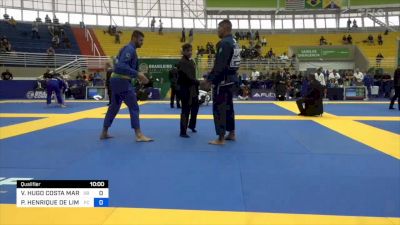 Supercut: Victor Hugo Wins '23 Brasileiros Double Gold With Signature Submission Offense
Supercut: Victor Hugo Wins '23 Brasileiros Double Gold With Signature Submission OffenseApr 18, 2024
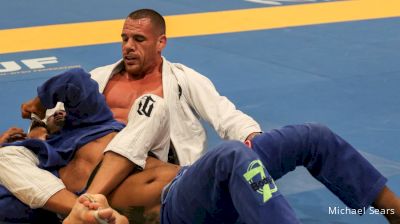 Every Non-Brazilian Jiu-Jitsu Competitor Who Has Won IBJJF Brasileiro
Every Non-Brazilian Jiu-Jitsu Competitor Who Has Won IBJJF BrasileiroApr 18, 2024
 WNO 23 Undercard Announced, 4 Prelim Matches Complete The Card
WNO 23 Undercard Announced, 4 Prelim Matches Complete The CardApr 18, 2024
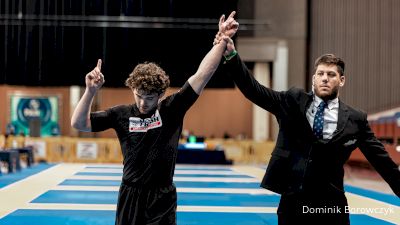 Dante Leon Officially Invited to ADCC 2024 At -77kg
Dante Leon Officially Invited to ADCC 2024 At -77kgApr 17, 2024
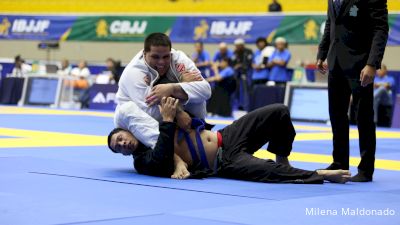 How To Watch IBJJF Brasileiro 2024
How To Watch IBJJF Brasileiro 2024Apr 17, 2024
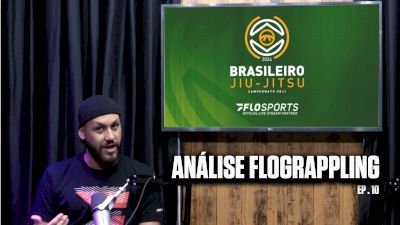 Destaques inscritos no Brasileiro de Jiu-Jitsu 2024 | Análise FloGrappling Ep.10
Destaques inscritos no Brasileiro de Jiu-Jitsu 2024 | Análise FloGrappling Ep.10Apr 16, 2024
 William Tackett Joins To Recap His Trials Run | ADCC Update Show (Ep 10)
William Tackett Joins To Recap His Trials Run | ADCC Update Show (Ep 10)Apr 15, 2024
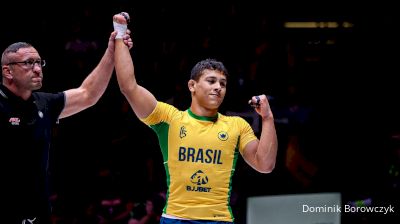 Mica Galvao Officially Invited to ADCC At -77kg
Mica Galvao Officially Invited to ADCC At -77kgApr 15, 2024
 Every Athlete Invited To The 2024 ADCC World Championships
Every Athlete Invited To The 2024 ADCC World ChampionshipsApr 15, 2024